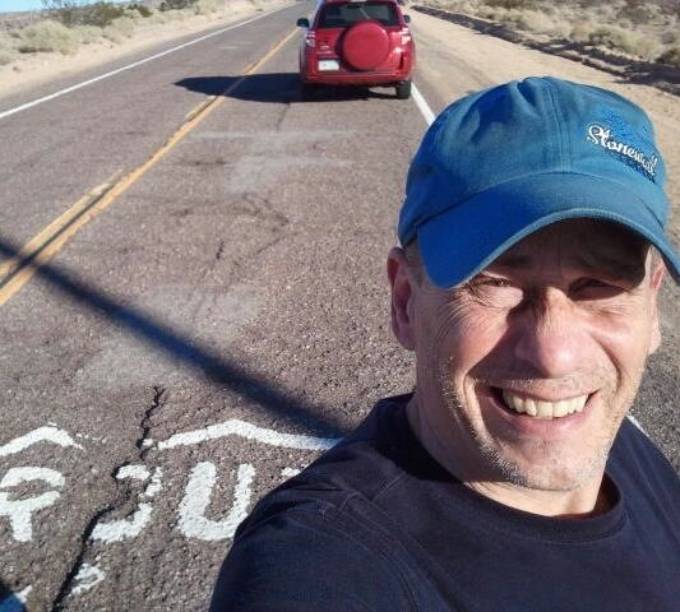Chasing Steinbeck’s Ghost—a new Kindle book by the author of Dogging Steinbeck—details the actual and speculative timelines of Travels with Charley, John Steinbeck’s 1962 account of his 1960 road trip with his wife Elaine’s poodle. According to Bill Steigerwald—an investigative reporter with a journalist’s skepticism about the claims of creative nonfiction—Steinbeck fabricated characters, conversations, and events to make points while covering his tracks when facts conflicted with the purpose or the persona of his 10,000-mile odyssey “In Search of America.” After Steigerwald set out to retrace Steinbeck’s journey in 2010, he discovered that Steinbeck’s dates and places frequently failed to compute, particularly at points where Elaine flew in to rough it with her husband and had to be edited out of the story. Like Steigerwald’s Truth about Charley website, the Kindle book is written in lively, contrarian language that makes for informative and entertaining reading. Scholars and specialists who defended Steinbeck’s creative nonfiction when Dogging Steinbeck appeared are unlikely to be swayed by the sequel. Fans outside the academy will find it engaging and eye-opening—further evidence of John Steinbeck’s continued popularity with regular readers, and of the relevance of Travels with Charley to issues of fake news and America’s unresolved search for itself.
- Home
- Books
- Life
- Music & Media
- Places & Events
- Politics & Religion
- April 28, 2024
July 29, 2020 by 2 Comments
About John Steinbeck

Most read American writer of the 20th century. Born in California. Died in New York. Romantic. Realist. Rebel. More about John Steinbeck
FacebookTwitterLinkedInGoogle+ PinterestMySpaceStumbleUponYouTubeStay In Touch
Receive email updates and stay in touch with SteinbeckNow.com
Recent Posts
- New Video from San Jose State University on John Steinbeck: A Writer’s Vision
- Celebrate! Western Flyer Returns to Monterey Bay
- Henry Fonda’s Daughter, Jane Fonda, to Receive 2023 John Steinbeck Award
- A Chance Christmas Dinner with John Steinbeck in 1947
- Saved! John Steinbeck’s Retreat in Sag Harbor
- Celebrating Woody Guthrie’s Grapes of Wrath Connection
- John Steinbeck Haunts Malcolm Harris’s Palo Alto
- San Jose State Hosts Steinbeck Conference
- For John Steinbeck, the Rains in Pajaro Hit Home
- Photo Inspires Sumi Ink Portrait by Eugene Gregan


Mr. Ray is seriously determoned to keep discrediting and fibbing “fibs” in Steinbeck’s Travel’s with Charlie. However, I think it is a great work with inspired writing and wisdom, still relevant in our chaotic and racially divisive times. Whether it’s non-fiction or fiction, at this point, is irrelevant! Steinbeck’s works tore down the walls between those barriers created by publishers and booksellers, and opened up the way for a new category of book – creative non-fiction. In later editions of Charlie publishers even stopped listing it as a non-fiction book.
Would anyone argue that most of the works labelled as non-fiction are based on 100% true events? The best non-fiction authors live through certain events, and then try to recreate them years later in their memory, and on printed pages. Most humans do not possess a photographic memory. Classic writers like Steinbeck are primarily storytellers. Would anyone seriously criticize fictional books by Steinbeck, like Tortilla Flat or East of Eden, because they are largely based on and inspired by actual events and characters that Steinbeck experienced? I don’t think so. So why keep criticizing some fiction found in a formerly classified work of non-fiction?
Mr. Ray’s notice seems even-handed to me.
He recognizes that Mr. Steigerwald has dug up information that enlightens us about the ways that the historical record of Steinbeck’s cross-country journey is (and is not) reflected in the creative nonfiction he published as TRAVELS WITH CHARLEY.
Some readers are not fazed by this information, and admire the book as much as ever.
Some readers feel that the contrast between what was published and what can be proven in the historical record undermines Steinbeck’s accomplishment.
Some readers are angered by Mr. Steigerwald’s doggedness in arguing that Steinbeck lied and misled us.
Mr. Ray recognizes that at this point, those who know Steigerwald’s work have probably made up their minds, and those who do not know it will find it interesting and will have to make up their own .
That seems fair to me!